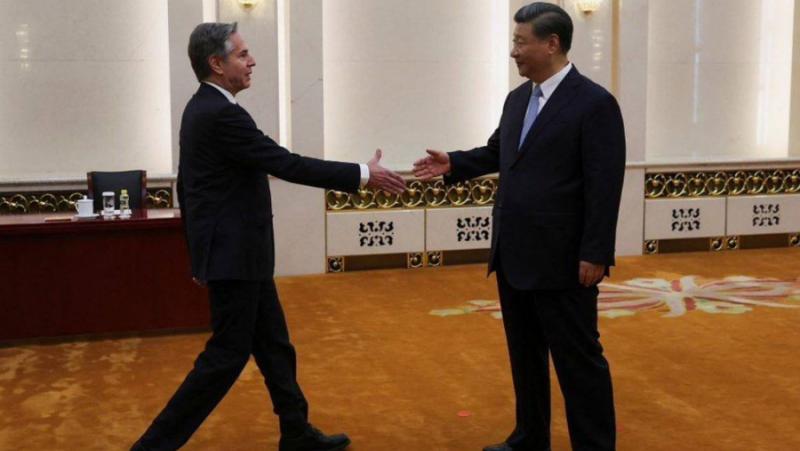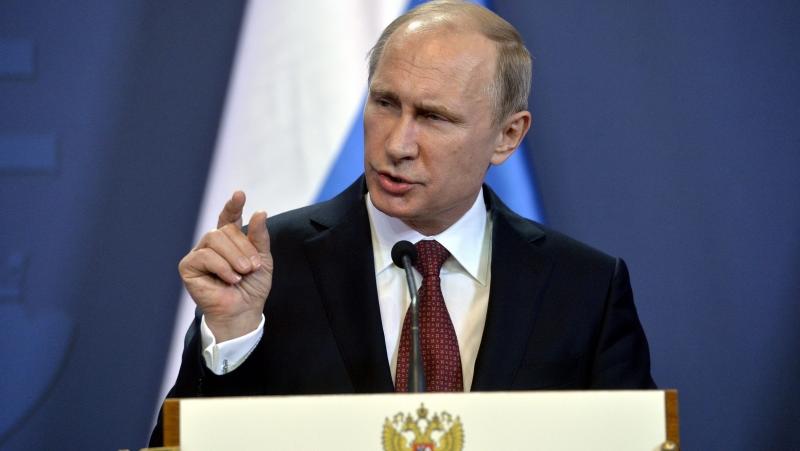/ world today news/ US Secretary of State Anthony Blinken ended his two-day visit to China with talks with President Xi Jinping. After the meeting, which lasted a little more than half an hour, some “progress” was reported. But there is no talk of changes in the political positions of the parties.
A long way to Beijing
Blinken became the first US secretary of state to visit China in five years and the highest-ranking American visitor during Biden’s three years in office.
The visit was planned for February but was canceled due to a Chinese hot air balloon incident. Beijing called it an “overreaction”.
Diplomacy in the Chinese direction is now very active. China was recently visited by French President Emmanuel Macron. With the mediation of Beijing, Iran and Saudi Arabia normalized their relations. China proposed a peace plan for the settlement of Ukraine – with which the special representative of the Ministry of Foreign Affairs made an international tour. All this unnerved the Americans. And then Blinken arrived.
Don’t expect compromises
Initially, he did not have a meeting with President Xi on his schedule. But of course she was prepared.
On the first day of his visit, Blinken held several hours of talks with Chinese Foreign Minister Qing Gan and the head of the Office of the Foreign Affairs Commission of the CPC Central Committee, Wang Yi.
The conversations were heavy. Thus, Wang Yi predictably raised the issue of Taiwan, advising Washington to stop interfering in the internal affairs of the PRC. “Preserving national unity has always been at the core of China’s core interests. There is no room for compromises and concessions,” he stressed.
Minister Qin said US-China relations are at their lowest level in more than 40 years. And the White House is to blame for this, its policy of containing the PRC.
No cold war
President Xi did accept Blinken. Noting that the dignitary had “frank and detailed discussions” with Chinese officials, he said the two sides “have made progress and agreed on some specific issues.”
“I hope that through this visit, the Secretary of State will make positive contributions to the stabilization of China-US relations,” Xi said.
Blinken, in turn, explained that Biden asked him to go to China “because he believes that the United States and China have an obligation to manage our relationship responsibly”, this is in the interest of both countries and the whole world.
According to him, Washington does not give up its adherence to the “one China” principle, that is, it does not recognize Taiwan’s independence. The US is also not seeking a cold war with China. He was assured in Beijing that they were not providing Russia with weapons for use in Ukraine. “We’re evaluating it and we’ve seen no evidence to the contrary,” Blinken said.
Agreements were not signed – neither did the American analysts who were more worried about whether the meeting would take place at all.
The talks laid the groundwork for Biden’s one-on-one interaction with Xi. They last saw each other last year at the G20 meeting in Bali. The general positive tone of this conversation gave hope for a warming, but the balloon incident wiped it all out. The president and chairman are expected to meet in San Francisco in November for the ATIS summit.
A delicate balance
Given the negative past experience, reaction to Blinken’s talks with Xi in both the US and China has been muted. Yes, there is a convergence of positions, but the process can be interrupted at any moment.
In the fall of 2022, the Republicans won a majority in the House of Representatives in the midterm elections for Congress. Kevin McCarthy, known for his sharp anti-China remarks, became the chairman. Speaking about the possibility of a trip to Taiwan (former Speaker Nancy Pelosi’s visit there led to a sharp rise in tensions), he said he was ready for it at any time. The Speaker of the House of Representatives is officially the third person in the United States. And his careless moves could cripple the State Department’s efforts.
The situation is aggravated by the fact that on China, Democrats and Republicans in Congress have a consensus. Many see China as an “existential threat” and accuse the White House of a lack of firmness.
Unsolvable problems
In Taiwan, despite the Secretary of State’s statements, the US still pursues a hostile policy towards China. It is primarily a matter of arms supplies. Contacts also continue at the level of representations, which de facto play the role of diplomatic missions.
The goal of the two American-led regional blocs – AUCUS (USA, Great Britain, Australia) and the QUAD (USA, Australia, India, Japan) is to contain China, which no one denies. This is unacceptable to Beijing.
“China has disillusioned itself. There is growing doubt that relations with the Americans can only improve through China’s efforts,” said Zhu Feng, a professor of international relations at Nanjing University.
Global Times, one of the main Chinese media, points out that the US desire for rapprochement is nothing more than rhetoric. “We must remain vigilant and consider the true intentions behind this,” the article said.
Beijing’s position is hardening, said Drew Thompson, a fellow at the Singapore School of Public Policy. According to him, Xi needs big concessions that the Americans will not accept. For example, the reduction of military presence in the Indo-Pacific region.
Evan Medeiros, former director of Asia at Obama’s National Security Council, recalls that during the Cold War there were certain rules of the game between the two poles that allowed them to maintain a balance. Now that’s gone, so Blinken, during his public visit, basically had to start all over from scratch.
Translation: V. Sergeev
Subscribe to our YouTube channel:
and for the channel in Telegram:
#Backstabbing #approach #China


